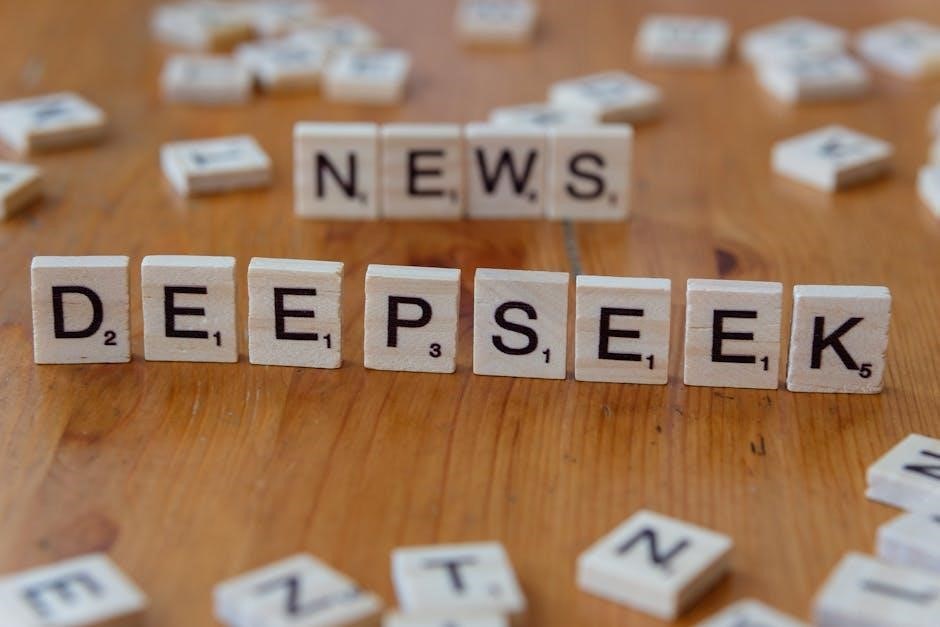WALC is a comprehensive resource designed to support language and cognitive rehabilitation. It offers structured activities tailored for individuals with aphasia and other communication disorders, promoting effective therapy outcomes.
1.1 Overview of WALC and Its Importance
WALC is a comprehensive workbook designed to aid individuals with aphasia and other language impairments. It provides structured activities that target word retrieval and cognitive skills, essential for effective communication. Developed by experienced speech-language pathologists, WALC is a vital resource in rehabilitation settings, offering practical exercises that cater to diverse patient needs and therapy goals.
1.2 Purpose of WALC in Language and Cognitive Therapy
WALC is specifically designed to address word retrieval and cognitive-communication challenges in individuals with aphasia and related disorders. Its purpose is to provide structured, evidence-based activities that enhance language skills and cognitive function. By focusing on practical exercises, WALC bridges the gap between clinical therapy and real-life communication, making it an indispensable tool for speech-language pathologists and cognitive therapists aiming to improve patient outcomes and independence.

Structure and Content of WALC Word Finding PDF
The WALC Word Finding PDF is a comprehensive guide offering organized activities tailored to improve word retrieval and language skills, with exercises designed for targeted practice and progression.
2.1 Organization of Activities in the Workbook
The activities in the WALC Word Finding PDF are meticulously organized to cater to varying skill levels. Each section focuses on specific aspects of word retrieval, starting with basic exercises and gradually progressing to more complex tasks. The logical flow ensures a smooth transition between topics, allowing users to build upon previously learned skills effectively. This structured approach enhances learning efficiency and supports consistent improvement in communication abilities.
2.2 Key Features of the Word Finding Exercises
The word-finding exercises in the WALC PDF are designed to target specific language deficits, with a focus on naming, describing, and categorizing. They incorporate visual and contextual cues to aid retrieval. The activities are evidence-based, ensuring therapeutic effectiveness. Each exercise is tailored to varying skill levels, making them adaptable for individualized therapy plans. Clear instructions and structured progression enhance user engagement and outcomes, providing a practical tool for both clinicians and clients.
Benefits of Using WALC for Word Finding
WALC enhances language recovery, offering structured exercises that improve word retrieval and communication skills. Its adaptability supports diverse needs, making it an effective tool for therapy and practice.
3.1 Improving Language Skills in Individuals with Aphasia
WALC’s structured exercises are specifically designed to aid individuals with aphasia in regaining and enhancing their language abilities. The workbook focuses on word retrieval, comprehension, and expression, offering a gradual progression of activities tailored to diverse cognitive and linguistic needs. By addressing these core areas, WALC helps improve communication skills, fostering independence and confidence in daily interactions. Its adaptability makes it an invaluable resource for both clinicians and individuals undergoing therapy.
3.2 Enhancing Cognitive Function Through Structured Activities
WALC’s structured activities are designed to enhance cognitive function by targeting memory, attention, and problem-solving skills. The exercises promote mental clarity and logical thinking, with gradual progression in difficulty. By engaging in these tasks, individuals can improve their ability to process information and apply it in practical situations, such as identifying objects or understanding sequences. This cognitive enhancement supports overall communication and daily functioning, making WALC a valuable tool for holistic rehabilitation.
3.3 Promoting Effective Communication in Therapy Settings
WALC’s word-finding exercises are designed to foster effective communication in therapy settings. By engaging in structured activities, individuals with aphasia can improve their ability to articulate thoughts and participate in meaningful conversations. The workbook bridges the gap between clinical exercises and real-life communication, enabling patients to express needs and ideas confidently. Clinicians can tailor these activities to meet individual goals, while caregivers can reinforce progress through consistent practice and encouragement, enhancing overall therapeutic outcomes.

Implementation of WALC in Therapy Sessions
WALC’s structured activities provide clinicians with a step-by-step guide for implementing effective language and cognitive exercises. The workbook seamlessly integrates into individual and group therapy settings, ensuring progress.
4.1 Step-by-Step Guide for Clinicians
Clinicians can follow a structured approach with WALC, starting with assessment to identify specific needs. Activities are organized by difficulty, allowing gradual progression. Clear instructions guide therapists through each exercise, ensuring effective implementation. The workbook includes tips for adapting tasks to individual patient requirements, enhancing engagement and outcomes. This systematic method supports consistent therapy delivery and measurable progress tracking.
4.2 Incorporating WALC into Individual and Group Therapy
WALC can be seamlessly integrated into both individual and group therapy sessions. For individual therapy, exercises are tailored to specific patient needs, fostering personalized progress. In group settings, activities promote collaboration and peer support, enhancing communication skills. Clinicians can adapt exercises to suit group dynamics, encouraging interactive learning. This flexibility makes WALC an invaluable resource for diverse therapeutic environments, ensuring effective and engaging language rehabilitation.

WALC Word Finding PDF as a Resource for Home Practice
The WALC Word Finding PDF is a valuable resource for home practice, offering accessible exercises that enhance language skills. It supports therapy continuity and caregiver involvement effectively.
5.1 Role of Caregivers in Supporting Therapy at Home
Caregivers play a vital role in reinforcing therapy by using the WALC Word Finding PDF at home. They can guide patients through exercises, monitor progress, and provide encouragement. Their involvement helps create a supportive environment, ensuring consistent practice. Caregivers also act as a bridge between clinical sessions and daily life, offering emotional support and practical assistance. This collaboration enhances the effectiveness of the therapy and fosters meaningful communication, aiding in the patient’s overall recovery journey and independence.
5.2 Tips for Effective Use of WALC Outside Clinical Settings
Consistency is key when using WALC at home. Set aside dedicated time daily for practice to build a routine. Use visual aids to supplement exercises, as they can enhance understanding and engagement. Track progress to identify strengths and areas needing improvement. Encourage caregivers to assist with activities, fostering a collaborative environment. Keep sessions short to maintain focus and motivation, gradually increasing duration as comfort grows. Regular review of completed tasks ensures continuity and reinforces learning.
Case Studies and Success Stories
WALC has empowered individuals with aphasia, showcasing remarkable progress in language recovery. Real-life applications highlight its effectiveness, with patients demonstrating improved communication and cognitive function through consistent practice.
6.1 Real-Life Applications of WALC in Therapy
WALC has been successfully integrated into therapy sessions, aiding individuals with aphasia and cognitive impairments. Clinicians report significant improvements in patients’ ability to retrieve words and form coherent sentences. Real-life applications include group activities where patients practice conversational skills and individualized plans tailored to specific needs. The structured exercises in the WALC Word Finding PDF have proven effective in boosting confidence and fostering independence in communication. These practical applications highlight WALC’s versatility and therapeutic value.
6.2 Patient Outcomes and Progress Reports
Patients using WALC have shown measurable improvements in word retrieval and language processing. Progress reports highlight enhanced conversational fluency and reduced cognitive fatigue. Many individuals with aphasia demonstrate increased independence in communication, with some achieving near-normal speech patterns. Clinicians consistently report positive outcomes, supported by anecdotal evidence of improved daily functioning. The structured exercises in the WALC Word Finding PDF have been instrumental in fostering these advancements, making it a valuable tool for long-term recovery and rehabilitation.
Digital Accessibility and Convenience
The WALC Word Finding PDF is accessible on various devices and software, ensuring convenience for clinicians and clients. Its digital format enhances portability and ease of use.
7.1 Advantages of Using PDF Versions of WALC
The PDF format of WALC offers numerous benefits, including easy access across multiple devices and platforms. It ensures that activities remain consistent and professional, with clear layouts that enhance readability. The portability of PDFs allows clinicians to use them in various settings, from therapy sessions to home practice. Additionally, PDFs are cost-effective and environmentally friendly compared to printed materials, making them a practical choice for modern therapy needs.
7.2 Compatibility with Various Devices and Software
WALC Word Finding PDF is optimized for seamless use across devices like tablets, smartphones, and computers. Its compatibility with popular software ensures accessibility for both clinicians and patients. The PDF format maintains consistency and functionality, whether viewed on Adobe Acrobat or alternative readers. This versatility allows for flexible use in clinical settings, home practice, or remote therapy, ensuring uninterrupted access to essential exercises and activities.
Cultural and Linguistic Considerations
WALC accommodates diverse cultures and languages through adaptable activities and availability in multiple languages, ensuring effective language therapy across different backgrounds.
8.1 Adapting WALC for Diverse Patient Populations
WALC’s versatility allows for cultural and linguistic adaptation, ensuring accessibility for diverse populations. Activities can be modified to align with specific cultural contexts, making therapy relevant and effective across different backgrounds. Additionally, the availability of WALC in multiple languages supports inclusivity, enabling patients from various linguistic backgrounds to benefit from its structured exercises. This adaptability ensures that WALC remains a valuable tool in diverse clinical settings, promoting effective communication and cognitive rehabilitation worldwide.
8.2 Availability in Multiple Languages
WALC is available in multiple languages, breaking down language barriers and ensuring accessibility for diverse populations. This feature allows clinicians to tailor therapy to patients’ native tongues, enhancing understanding and engagement. The multilingual availability of WALC supports its global application, making it a valuable resource for therapists working with linguistically diverse patient groups. This accessibility ensures that language barriers do not hinder effective communication and cognitive rehabilitation, promoting inclusivity and equity in therapy settings worldwide.
Research and Evidence Supporting WALC
Studies demonstrate WALC’s effectiveness in improving language and cognitive skills, with expert endorsements highlighting its value in rehabilitation. Research supports its structured approach and therapeutic benefits.
9.1 Studies on the Effectiveness of WALC Activities
Research highlights the effectiveness of WALC in improving language and cognitive functions. Studies demonstrate significant progress in word retrieval and communication skills among participants. Activities are evidence-based, ensuring therapeutic benefits. Positive outcomes in problem-solving and memory tasks further validate WALC’s impact. Expert endorsements reinforce its credibility as a valuable tool in rehabilitation settings.
9.2 Expert Endorsements and Recommendations
Speech-language pathologists and cognitive therapists widely recommend WALC for its structured, evidence-based approach. Experts endorse its effectiveness in addressing aphasia and cognitive impairments. Many professionals highlight its versatility and adaptability to individual needs. Positive feedback from specialists underscores its value as a key resource in rehabilitation. Expert recommendations further reinforce WALC’s role in advancing language and cognitive recovery, making it a trusted tool in clinical practice.

Future Directions for WALC Development
Future updates may include expanding activity variety and integrating modern technology for enhanced accessibility. Digital tools could further personalize therapy experiences, benefiting diverse learner needs globally.
10.1 Expanding the Range of Activities
Future updates to WALC may include a broader variety of word-finding exercises, such as interactive puzzles, crosswords, and gamified tasks. These additions aim to cater to diverse learning styles and cognitive levels, ensuring the workbook remains engaging and effective. Enhanced digital compatibility and multimedia elements, like audio prompts, could also be introduced to improve accessibility and user experience, making WALC even more versatile for therapists and patients alike.
10.2 Integration with Modern Technology
Integrating WALC with modern technology enhances accessibility and engagement. Digital versions of the workbook, such as the Word Finding PDF, can be easily accessed on tablets, smartphones, and computers. Interactive features, like clickable exercises and progress tracking, can be added to boost user experience. Additionally, cloud-based storage allows clinicians and patients to access materials anywhere, promoting consistent practice and therapy continuity. This integration also supports gamification, making language therapy more engaging and effective for diverse learners.
The WALC Word Finding PDF is a trusted resource for language and cognitive therapy, offering structured activities that empower individuals with aphasia to communicate effectively in various settings, supporting both clinicians and patients in achieving meaningful progress.
11.1 Summary of Key Points
The WALC Word Finding PDF is a valuable resource for language and cognitive therapy, offering structured activities to enhance word retrieval and communication skills. Designed for individuals with aphasia, it provides practical exercises that clinicians and caregivers can use in both clinical and home settings. Its effectiveness lies in its adaptability, promoting consistent therapy and measurable progress. By supporting communication practice and cognitive function, WALC empowers individuals to regain confidence in their language abilities, making it a trusted tool in rehabilitation.
11.2 Final Thoughts on the Value of WALC Word Finding PDF
The WALC Word Finding PDF is an indispensable tool for fostering communication and cognitive recovery. Its structured, adaptable approach makes it a cornerstone in rehabilitation, empowering individuals to overcome language barriers. Clinicians and caregivers alike can rely on its evidence-based exercises to support progress. By bridging therapy and home practice, WALC enhances consistency and confidence, proving its lasting value in the journey toward improved language and cognition.
